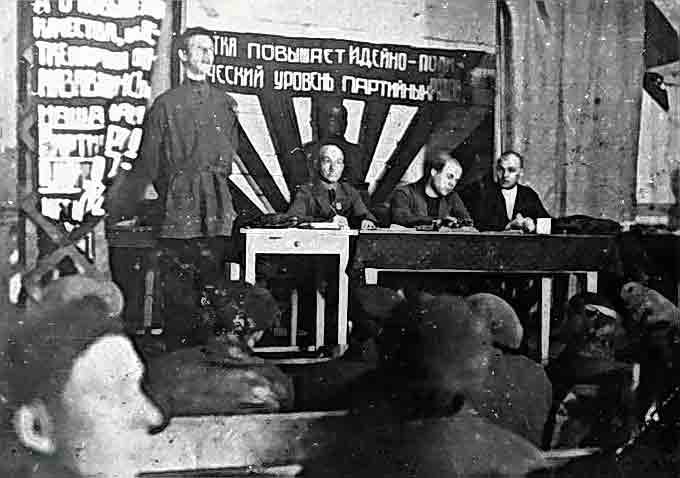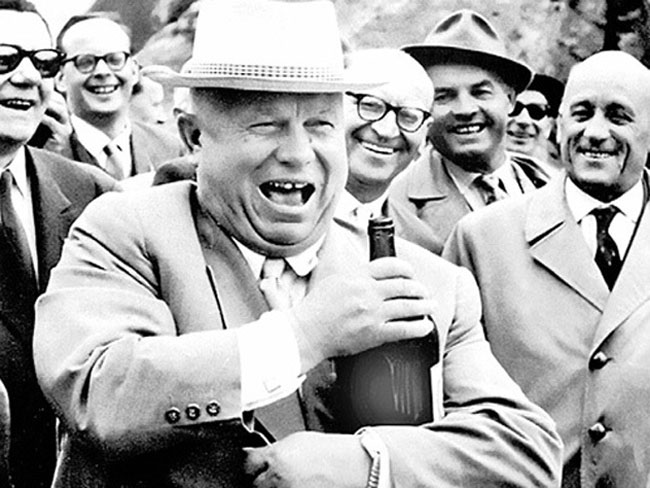The work “On the Right of Memory” truthfully tells about the difficult time. Echoes of the past are clearly heard in it, the terrible fate that the “father of peoples” has prepared for his children. Twardowski’s poem was born as an act of protest, and even its name blew up the terrible silence that covered the crimes of the Stalinist regime.
History of creation
Since the time of writing the work, we will begin a holistic analysis of “By the Right of Memory”. It was written in 1966-1969. The author is trying to publish his creation on the pages of the New World. But censorship persistently does not miss the poem for publication. Criticism of Stalin in these years gave way to complete oblivion and silence. Twardowski never saw the poem in print. The new work was conceived as an addition to the work “Behind the Far - Far”. Later it became independent. As a detailed analysis of the chapters will show, “By the Right of Memory” by Twardowski is a work that reflected the author’s reaction to the political situation of the 60s.

The publications of the “New World” acquired a clear opposition character. In 1968, Soviet tanks appeared on the streets of Prague, and an entry appeared in Tvardovsky’s notebook: “How Prague met us in the 45th, and how it meets us in the 68th”. The writer condemned this action and did not put a signature on the letter to Czechoslovak writers. This is an action with a capital letter - civil, human. But the officials were annoyed, and they literally took up arms against the magazine and the editor-in-chief. Why publishing this poem in those years was unthinkable, a detailed analysis will show. “For the Right of Memory” - a work that was published in the journal “Banner” only in 1987.
Genre and compositional features
The work has three parts, which are preceded by a small introduction. Many literary scholars call Twardowski's work a triptych. Also in the process, he was called by the author himself. The Banner magazine, which first published this poem, defined its genre as a lyric poem. In the final version, the designation “triptych” was removed, and parts of the poem were given headings. This emphasizes the plot-psychological component of the work of Twardowski "On the Right of Memory." An analysis of the chapters that we are now considering will show that the emotional subtext of the poem is very deep. This is confession, repentance, conversion, accusation. The author and the monological form of the narrative give integrity to the poem. The work opens with an introduction, which expresses the credo of the writer.
First part
We continue the analysis “By the Right of Memory” by Twardowski and consider the first chapter of the work. In the course of work on the poem, the author decided to include here an episode of departure from his native home, a fragment that appeared under the title “In the Hayloft” even before the publication of the work. This poem was the first part of “Before Departure”.
It was written as an appeal to a friend of youth and created an atmosphere of trust when talking about the most secret. The author accurately conveys the feelings of youth - the hopes and aspirations of young heroes. Two village youths are full of hope and are going on a journey, "throwing our outback." They are driven by lofty thoughts - “we lived the cherished plan”, youthful maximalism - “the spirit of doubt is unknown” and the romantic dream - “we ourselves were waiting only for happiness”.
The second part of
We continue the analysis of the poem “By Right of Memory” in chapters with the words that “Stalin dropped in the Kremlin hall”, and they were perceived by many people as getting rid of the “indelible mark” - “the son is not responsible for his father”. The second part of the work is called the same. The words “father of nations” turned out to be a hoax, and Twardowski reflects how immoral and inhuman these words are “for the guilty without guilt”.
Repeating themselves, they acquire a completely new emotional and semantic meaning in the work “By the Right of Memory”. The analysis shows that in exactly five words the author writes down the fates of the peasants crippled by the “great turning point”, entire nations thrown into exile, the fates of people who had to double the miscalculations of the “great commander”.
The third part
We continue the analysis “By the Right of Memory” by Twardowski. The last chapter of the poem “On Memory” conveys the author’s thoughts and motives, stated in its title: “they tell me to forget silently”. It is written in a free manner. In it, the author raises many questions: the echoes of the disputes that were waged in the editorial office of the New World, when they defended the right of literature to tell the truth. "They forget and ask to forget - a memory for the seal." All lines of the text create a holistic view and are based on the attitude of the author, who clearly expresses his position. “Everyone knows everything; trouble with the people! " Tvardovsky measures everything with the highest criteria for him - “the truth of existence”, “the memory of truth” and conscience. The key words of the third part are: true, true, memory, pain.

As the analysis “Right of Memory” showed, the words of Twardowski tell everyone that only we are responsible for our time, and each of us is indebted to the past. No matter how bitter the truth, and no matter how they want to “drown it in oblivion,” everyone should know the truth in order to protect themselves from the repetition of terrible and criminal mistakes. Therefore, the poet measures everything with a “true memory,” since without it there is no involvement in life. Behind the hero of the work is a poet poet who teaches us high morality, mercy, and citizenship. Be those people who "do not hide their eyes."